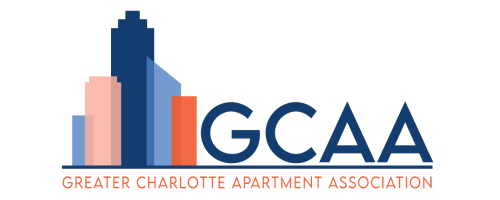'Wall Street to Main Street': How COVID-19 is affecting local renters, landlords
By: Ashley Fahey, Real Estate Editor - Charlotte Business Journal
The fallout of the COVID-19 pandemic continues to change daily, but renters and the larger apartment industry in Charlotte and elsewhere are sure to see near-term, immediate impacts as well as long-term implications.
N.C. Supreme Court Chief Justice Cheri Beasley on Sunday requested judicial officials drastically reduce operations in courthouses across the state to help limit the spread of the novel coronavirus. Included in her order was a moratorium on eviction and foreclosure proceedings for at least 30 days.
Utilities, including Charlotte-based Duke Energy Corp. (NYSE: DUK) and Charlotte Water, have also committed to not shutting off access to water or electricity because of missed payments during the crisis.
Still, individuals and families who already struggle to pay rent each month in what are comparatively normal circumstances are beset with additional challenges during COVID-19.
Those who work in the state's service industry, for example, will see a big hit, with Gov. Roy Cooper issuing an executive order to close all bars and restaurants, except for take-out and delivery service, by 5 p.m. Tuesday. The move will result in severely slashed, if not completely stopped, pay as hourly workers are left without jobs for the time being.
Cooper's executive order includes an expansion of unemployment insurance to help workers affected by COVID-19, and an $850 billion stimulus plan is being considered at the federal level.
"We're going to need to think about those families that, in two weeks, aren’t going to have enough money to pay their rent," said Kim Graham, executive director of the Greater Charlotte Apartment Association. "April 1-5 is going to be a challenging time."
A Charlotte COVID-19 relief fund, managed by the Foundation For The Carolinas and the United Way of Central Carolinas, was formally established on Monday, with a $1 million donation by LendingTree Inc. (NASDAQ: TREE) and a $1 million match from the city of Charlotte kicking it off. The fund will be dispersed to nonprofits working with people seeing the biggest impacts from COVID-19, including low-income renters and homeless individuals.
Marcie Williams, president of RKW Residential, said in an email her company will work with its residents on rent payments "in any way we can." RKW is deferring to the courts, referencing the actions made to halt pending eviction cases and process new cases.
How exactly emergency funding will be distributed from the federal government to individuals and businesses, including ones the GCAA represents, needs to be figured out, Graham said. It could come in the form of direct payments or Federal Emergency Management Agency type of assistance, in which individuals fill out a form and then receive payment from a federal agency, but it's not clear yet what will take place, she added.
"If it's (the U.S. Department of Housing and Urban Development) or the Treasury making an infusion into apartment communities, how that will flow is really a question mark," Graham said.
The White House said Tuesday afternoon it may send checks directly to Americans over the next two weeks to help mitigate the economic impact of the virus.
Landlords will also be affected. Graham said she hopes banks and other financial institutions will be flexible in terms and payments for debt carried by apartment properties.
"If that ever becomes unstable, then that’s a real problem," she said.
Jenny Schuetz, a fellow at Brookings Institution's Metropolitan Policy Program, wrote last week that short-term financial assistance would help families keep up with rent and buy food.
"It would be more effective than a temporary moratorium on evictions ... since landlords also need money to pay their mortgages, property taxes and utilities," Schuetz wrote.
Washington, D.C.-based National Multifamily Housing Council has also called on federal lawmakers to provide short-term financial assistance to renters facing layoffs or lengthy periods without a paycheck. It recommended housing providers put into action a number of things, including written payment plans and agreements with residents, waiving late fees and administrative costs for at least 30 days, developing a response plan for potential COVID-19 exposure, and sharing COVID-19 resources with residents.
Keeping high-density properties like apartment buildings sanitized has become a priority for property managers and landlords. A report released today by JLL examining potential impacts of commercial real estate sectors from COVID-19 notes higher-density living and increased collaboration spaces have potentially heightened transmission risks, and that operators need to develop protocols accordingly.
Williams said RKW is doing virtual tours of apartments whenever possible and has formalized cleaning and sanitation protocols at its properties. It's also closed off common areas and amenities at RKW properties to help reduce any potential spread of germs.
Diminishing consumer confidence and reduced mobility will impact multifamily demand amid the crisis, according to the JLL report. It's expected the sector will remain resilient long term, despite a short-term slump, the report predicted.
But, especially beyond the next 30 days, it's impossible to know exactly how hard the local apartment industry, its businesses and renters will be hit.
"We’re all being touched by this crisis, from Wall Street all the way to Main Street," Graham said.
